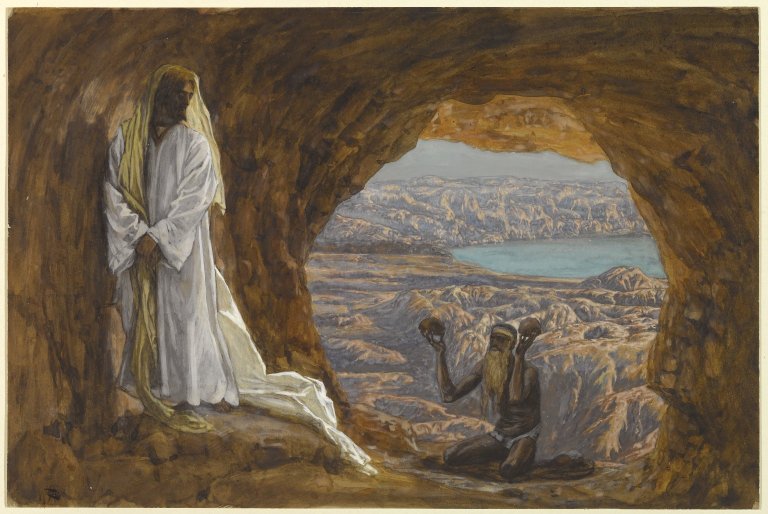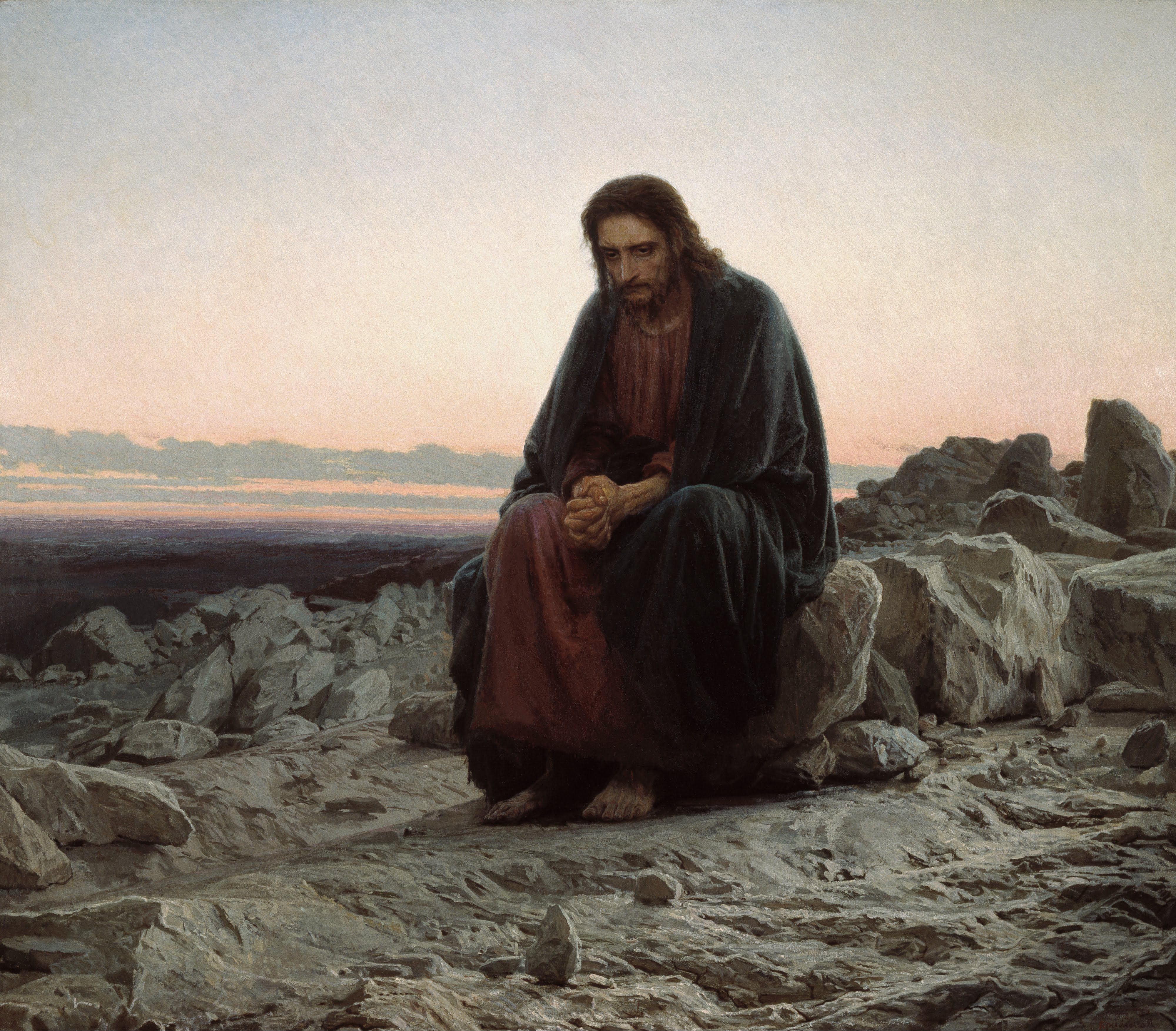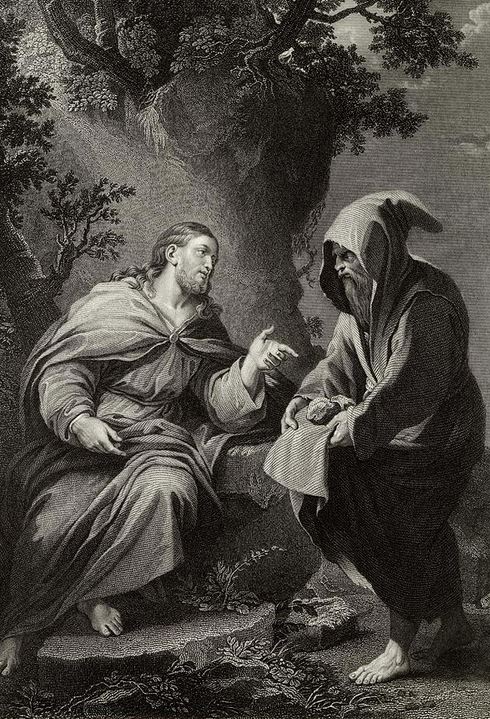A reading from the Book of Genesis
(Chapter 2:7-9, 3:1-7)
No one knows when the Book of Genesis was written, but biblical scholars calculate that it was sometime after the Jewish people came back from the Babylonian Exile in the sixth century B.C. and people questioned why God had allowed them to experience such prolonged misery.
This story of Adam and Eve is obviously an allegory, but it provides answers to two of life’s most important questions. Why are we not immortal; why do we all have to die? And, is there not some super wisdom that can protect us from making wrong decisions that might lead to death or ruin?
The authors answer these questions by telling a two-part story. First, “The Lord God formed man out of the clay of the ground and blew into his nostrils the breath of life, and so man became a living being.” The authors wanted their listeners or readers to know that God is the creator of all that exists, and that everything God has created is good. It was important to begin the story in a positive vein for a people who had just been through the hell of the Babylonian Exile and for people who might experience similar horrors.
The story then turns dark. “The serpent asked the woman, ‘Did God really tell you not to eat from any of the trees in the garden?’” The woman answers, “It is only about the fruit of the tree in the middle of the garden that God said, ‘You shall not eat or even touch it, lest you die’ …. But the serpent said to the woman: ‘You certainly will not die! No, God knows well that the moment you eat of it your eyes will be opened and you will be like gods who know what is good and what is evil.” Of course, we know that the woman gives in to the serpent, eats some fruit, and then gives some to the man, Adam.
The authors answer both those seminal questions. We do not have immortality, because the woman and man disobeyed God, and there is no super wisdom to prevent us from wrong decisions and sin. Like Adam and Eve, we enjoy free will, and also like them, we are responsible for the choices we make.
Responsorial Psalm
(Psalm 51:3-4, 5-6, 12-13, 17)
“Be merciful, O Lord, for we have sinned.” Let us ask for God’s forgiveness for any time we may have discriminated against another person, at any time, for any reason.
A reading St. Paul's Letter to the Romans
(Chapter 5:12-19)
Paul traces the root of sin to Adam and forgiveness of sin to Jesus Christ. “But death reigned from Adam to Moses, even over those who did not sin after the pattern of the trespass of Adam…. But the gift is not like the transgression. For if by the transgression of the one, the many died, how much more did the grace of God and the gracious gift of the one man Jesus Christ overflow for the many.” Notice the word “gift.” It is one of the most important words in our faith. Our life itself is a gift. Our faith is a gift. God’s unconditional love is a gift. We did not earn any of it.
For centuries, people have asked the question, “How can I get to heaven?” The answer is that we can’t do it ourselves. We need to accept the gift of life, of God’s unconditional love, and the presence of the Holy Spirit, our life partner, within our souls. It is all gift from our merciful Father who never stops loving us. Please share the gift with those you love and especially those you may find hard to love.
A reading from the holy Gospel according to Matthew
(Chapter 4:1-11)
This is the story of one man’s battle with evil temptations. Notice who leads him and stays with him throughout: “At that time Jesus was led by the Spirit into the desert to be tempted by the devil.” Jesus fasts 40 days and 40 nights, and he is hungry and vulnerable. “The tempter approached and said to him, ‘If you are the Son of God, command that these stones become loaves of bread.” That was the first temptation, physical hunger.
Most of us have not experienced that kind of extreme hunger, but think of the millions of our brothers and sisters all over the world who live with hunger every day. Jesus responds, “One does not live on bread alone, but on every word that comes forth from the mouth of God.” Then the devil ups the ante to life itself and tells Jesus that he should throw himself down from the parapet of the temple. Then, finally, he shows Jesus “all the kingdoms of this world in their magnificence, and he said to him, ‘All these I will give you.’ … Jesus said to him, ‘Go away Satan.’”
That covers all the temptations that you and I might experience—all sorts of hungers, lack of trust in God, and desire for power. Jesus faced them all, and he is with us in all of our temptations. We live in the mystery of God’s mercy and our life partner, the Holy Spirit, lives within us.
✝️
Painting: Jesus Tempted in the Wilderness, James Tissot (1836-1902), Brooklyn Museum. Public domain.
Excerpts from the English translation of the Lectionary for Mass © 1969, 1981, 1997, International Commission on English in the Liturgy Corporation (ICEL). All rights reserved.
Bill Ayres was a founder, with the late singer Harry Chapin, of WhyHunger. He has been a radio and TV broadcaster for 40 years and has two weekly Sunday-night shows on WPLJ, 95.5 FM in New York. He is a member of Our Lady Queen of Martyrs Church in Centerport, New York.



